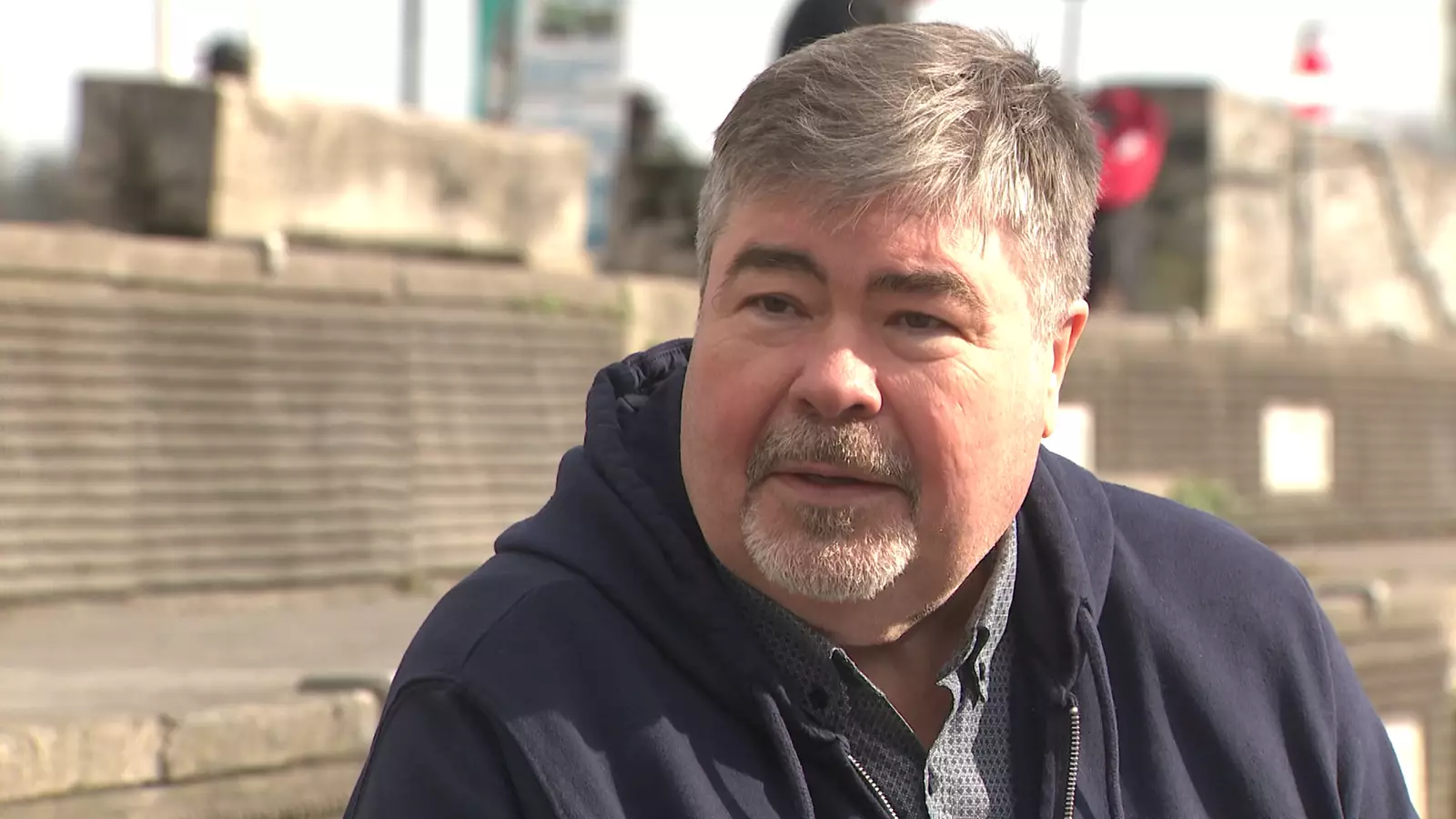When Mark Hammersley stands in the comforting Welsh sun, one might think he’s just another face in a crowd, brimming with health and vitality. Yet, behind that smile lies a story of unimaginable struggle and triumph against the deadly COVID-19 pandemic. Mark’s life took an unexpected turn in October 2020 when he found himself gasping for air in Warrington Hospital’s intensive care unit. The nation was then grappling with the second wave of a pandemic that would redefine human interactions and health systems. His experience serves as a profound reminder of resilience and the importance of hope during our darkest hours.
In the chaotic atmosphere of the ICU, where the muted beeps of diagnostic machines painted a grim reality, Mark recalled the most critical phase of his illness. “The first 24 hours were like being lost,” he later articulated. It suddenly becomes evident how the weight of illness bears heavy on both patients and their loved ones. Mark’s health needs—complicated by diabetes and obesity—placed him squarely in a precarious situation, yet he exhibited an inspiring spirit. Despite the grim prognosis and his life hanging by a thread, there was an undeniable flicker of hope in his narrative.
The Gamble that Saved a Life
One of the most striking elements in Mark’s story is the medical gamble that ultimately changed the trajectory of his life. Instead of immediately resorting to the invasive measures often used in severe COVID cases, his doctors chose a less conventional route—utilizing a CPAP machine to support his breathing. This equipment, instrumental in keeping airways open, distinguished the difference between life and death for many patients at that time. Mark lives with a powerful understanding of his fortune; many others faced dire outcomes after being placed on ventilators.
This becomes a critical juncture for understanding how medical decisions—rooted in experience and instinct—hold extraordinary significance. This gamble not only saved Mark’s life but also reflects the ethical dilemmas faced by healthcare providers during the pandemic. In choosing less invasive means, these doctors demonstrated both courage and compassion, positioned against a backdrop of overwhelming fear. It creates a compelling conversation around the evolving nature of medical practices during crises and invites us to reflect on how our healthcare system contends with challenges.
The Lingering Shadows of COVID-19
Emerging from the clutches of COVID-19 doesn’t equate to an easy return to normalcy. Mark’s story is a testament to the long-lasting effects of this virus. Five years on, he carries the weight of lung scarring, a condition that serves as a constant reminder of his battle. He spoke candidly about how it has impacted his day-to-day life, particularly his physical capabilities. For every breath he takes now, whispers of dread remind him of the fragility of his health.
The emotional and psychological ramifications of surviving a harrowing illness are perhaps even more poignant. Mark’s acknowledgment that he feels “a lot better than I was” showcases an innate drive to reclaim his life, juxtaposed against the reality of carrying his health complications indefinitely. It raises an important dialogue about survivorship, resilience, and the psychological toll of health impairments that many may choose to overlook in discussions about recoveries.
The Ripple Effect on Society
As the UK prepares to commemorate the five-year anniversary of the pandemic’s inception, we must acknowledge that Mark’s journey is emblematic of thousands of untold stories of survival and loss. The memorialization of this moment will serve as a reflection on lives changed forever, families torn apart by grief, and the unwavering resolve of frontline workers who fought valiantly against an invisible foe. The government’s planned observance may feel like a gesture; however, it carries profound implications as we recognize the broader impact of COVID-19 on society.
The reflections that accompany such moments should not only honor those lost but also compel us to think about public health policy moving forward. As we grapple with the remnants of COVID, we need a renewed commitment to bolster healthcare systems, ensure accessibility, and address the socio-economic disparities that permeated our response to the virus. In revisiting Mark’s experiences, we are reminded that every individual count and every medical decision carries weight not only for patients but for societies at large.
Mark Hammersley’s story is a powerful testament to survival and the human spirit’s resilience. It’s an urgent reminder that, beyond the statistics and data, there are real individuals whose lives are forever altered. In these reflections, we find our collective narrative of endurance, hope, and a determined drive toward a more equitable future.

